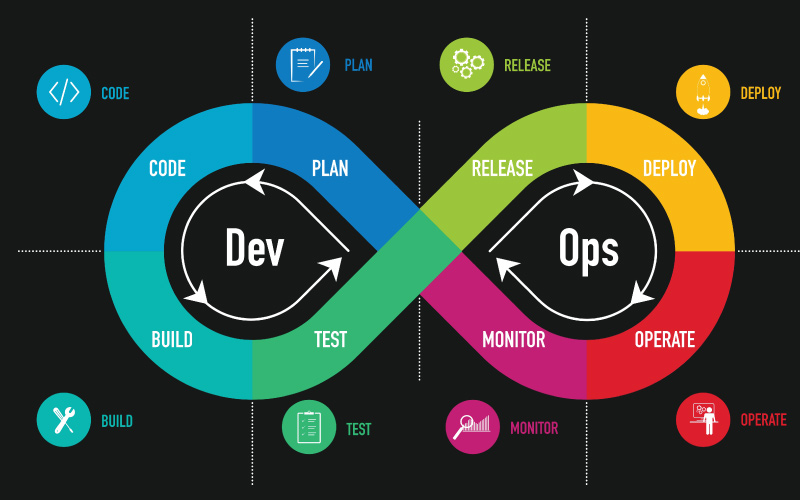Revolutionizing IT with DevOps: A Comprehensive Overview
 Akash Jadhav
Akash Jadhav
Introduction:
In the ever-evolving landscape of software development and IT operations, DevOps has emerged as a transformative approach to bridge the gap between development and operations teams, fostering collaboration, efficiency, and continuous improvement. In this blog post, we will delve into the history, culture, and lifecycle of DevOps to provide a comprehensive understanding of this crucial methodology.
History of DevOps:
The roots of DevOps can be traced back to the early 2000s, with the growing recognition that traditional silos between development and operations were impeding the speed and quality of software delivery. However, it was not until around 2009 that the term "DevOps" gained prominence, with the publication of the book "The Phoenix Project" by Gene Kim, Kevin Behr, and George Spafford.
DevOps Culture:
At its core, DevOps is not just about tools and processes but represents a cultural shift in the way teams collaborate and work towards common goals. The three key pillars of the DevOps culture are collaboration, automation, and a focus on continuous improvement.
Collaboration: DevOps encourages cross-functional collaboration, breaking down the traditional barriers between development, operations, and other stakeholders. Effective communication and shared responsibility are essential for achieving seamless integration between different phases of the development lifecycle.
Automation: Automation is a fundamental aspect of DevOps, aimed at streamlining repetitive tasks, reducing manual errors, and accelerating the delivery pipeline. Automation tools are used for code deployment, testing, infrastructure provisioning, and monitoring, allowing teams to focus on more strategic and creative tasks.
Continuous Improvement: DevOps embraces a mindset of continuous improvement, where teams regularly assess their processes and performance, seeking opportunities to enhance efficiency and deliver higher quality software. This iterative approach is key to adapting to changing requirements and maintaining a competitive edge.
DevOps Lifecycle:
The DevOps lifecycle consists of several interconnected stages, each contributing to the seamless delivery of software. While different models may define these stages in varying ways, a common representation includes:
Plan: The planning phase involves defining project goals, prioritizing tasks, and establishing a roadmap for development and deployment.
Code: Developers write and review code collaboratively, ensuring that it meets quality standards and aligns with project requirements.
Build: The code is transformed into executable artifacts through automated build processes, allowing for consistency and reproducibility.
Test: Automated testing is performed to validate code quality, functionality, and compatibility, identifying issues early in the development process.
Deploy: Code changes are deployed to production or staging environments, utilizing automation to minimize deployment risks and ensure consistency.
Operate: Operations teams monitor and manage the deployed applications, addressing issues promptly and ensuring optimal performance.
Monitor: Continuous monitoring provides real-time insights into application performance, user experience, and infrastructure, enabling proactive problem resolution.
Conclusion:
DevOps is more than just a set of practices or tools; it represents a cultural shift towards collaboration, automation, and continuous improvement. Understanding its history, embracing its cultural principles, and following its lifecycle can empower teams to deliver software faster, more reliably, and in alignment with business objectives. As technology continues to evolve, DevOps remains a cornerstone for organizations aiming to thrive in the fast-paced world of software development and IT operations.
Subscribe to my newsletter
Read articles from Akash Jadhav directly inside your inbox. Subscribe to the newsletter, and don't miss out.
Written by

Akash Jadhav
Akash Jadhav
👋 Hello! I'm Akash Jadhav, and I'm thrilled to welcome you to my DevOps journey on Hashnode. 🚀 With 1.6 years of hands-on experience in cloud migration, I'm now venturing into the dynamic world of DevOps. This blog will be your go-to place for tech insights, practical tips, and real-world stories as I navigate through this exciting field. 🌐 Join the conversation! Whether you're a seasoned pro or just starting, I encourage you to share your thoughts, questions, or experiences in the comments. Let's create a space for collaborative learning. Happy coding! Akash